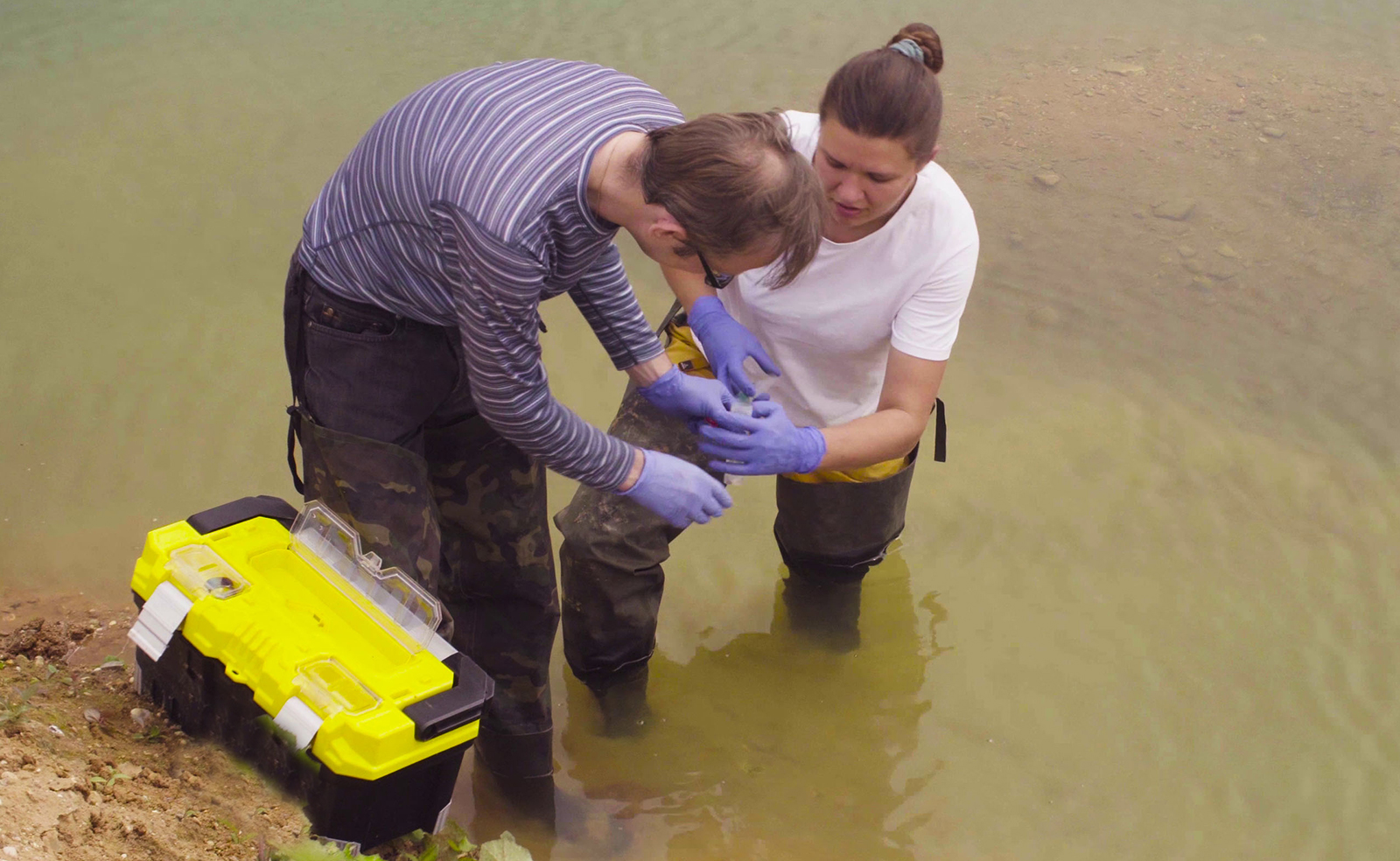 Not Enough Monitoring / Testing
Not Enough Monitoring / Testing
The public often assumes that water quality at swimming beaches is tested daily and that the results are immediately available to determine whether a beach is opened or closed for the day. Unfortunately, this is not the case. Most beaches are only tested once a week, which is the minimum federal requirement and only applies to public beaches and those using federal BEACH Act funding. Some private beaches are tested much less frequently or not at all. This website marks beaches that are testing less frequently than once a week with grey grade markers.
Current standards, funding, and technology support testing for fecal indicator bacteria and beach closure decisions are made based on the concentration of fecal matter recorded. The results from the weekly test is not available until the next day, or two days depending on the lab used. Real time water quality testing protocols are under development but are not currently used in New York or Connecticut.
With real-time data unavailable to beach managers, closures can also be made based on rainfall at beaches where historic monitoring data shows an increase in fecal bacteria after rain. Most community health departments keep a list of which beaches should be closed after rain and when they are considered safe to reopen based on historic data. This website can be used by the public to make these determination for themselves. Just look at the percent of failing samples that are marked as “wet weather” and if those account for the majority of failures, avoiding that beach within 24 hours of rain is a good rule of thumb to follow.
Why You Should Care
Exposure to pathogen-contaminated water can cause symptoms such as nausea, vomiting, diarrhea, headache, and fever. Illnesses of the upper respiratory tract, and minor skin, eye, ear, nose, and throat infections also have been associated with pathogen exposure in polluted water. Individuals with compromised immune systems, the elderly, and children (because of their level of activity and increased opportunities for ingestion of water) are most vulnerable to these illnesses. We recommend swimmers avoid polluted water and wash their hands after swimming and before eating.
For more information on waterborne illnesses visit https://www.cdc.gov/healthywater/swimming/swimmers/rwi.html
What can you do?
 Water Quality Monitoring
Water Quality Monitoring
Collect water samples and help us monitor the health of Long Island Sound.
 Contact Beach Management Authority
Contact Beach Management Authority
Investigate and educate yourself on what is happening at your area beaches.
 Join the Movement
Join the Movement
Sign up for action alerts and stay connected to our campaigns.
